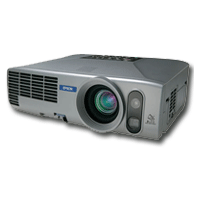Shall We Consider A Cheap Projector?
By Clifford Tan
What exactly defines a cheap projector? Different people will have varying opinions in regard to this matter. For some people it implies a lack of quality where for some others, it will mean an opportunity to have high quality at a substantially reduced price. Finding a cheap projector does not require any forfeiture of quality. If it does, then the buyer should beware and shop around more. Cheap projectors are readily available featuring all of the benefits to establish a nice home theater system.
The DIY or Do It Yourself projector is a popular alternative for many people who could not otherwise afford a home projection system. While it does have some drawbacks for those who are not so mechanically inclined, it also has many benefits. If an individual has a rudimentary knowledge of electronics, this can be a good choice. There are many available plans for this type of project. Parts can be a little more difficult to find, but it can be done with a little research and some phone calls. While it is not a fix-all solution, it is a viable alternative if you are looking for a cheap projector.
Online auctions are another way of getting around the high cost of some quality projectors. When looking at auctions, it is best to note details in the description. Avoid any type of auction where any damage may be expressed or implied. There is no need in trying to find a cheap projector that will have to be repaired. More often than not, these projects end up in a closet or garage somewhere and never get finished, usually due to the high cost of fixing them.
It is a wise decision to look for auctions from people who have upgraded their theater systems or otherwise have a reasonable explanation for being rid of the projector. Most online auction sites have contact information available, so if there are unanswered questions, it is best to ask them BEFORE you bid. If the seller will not answer questions or answers them incompletely or indirectly, do not worry. It is probably not a good idea to bid on it either. The seller may often avoid specifics when there is damage that affects the performance of the projector. It is substantially better to lose a bid on a good projector than it is to win a bid on a damaged item. There will always be more auctions and more cheap projectors available.
One category that is often overlooked is a cheap alternative in home projector systems. These are commonly referred to as pre-made projectors. These are usually factory assembled DIY projectors. Often, a company that buys and sells projectors and parts will have better deals than the average person can get by buying their parts in bulk. Some of these companies have people that put together cheap projectors and sell them, generally on the internet, but sometimes on online auctions and by other means as well. If a person is not mechanically inclined, but still wants the benefit of a cheap projector, this is a very good alternative.
Note: This article may be republish for use in websites as long as the author bio and active hyperlinks are kept intact.
Clifford Tan, a Home Theater enthusiast and owner of the website Home Projector Advisor offering projector reviews, advice and many useful tips and hints to business and home consumers looking to purchase a home projectors. To find out alot more information about home projection system, visit the site http://www.home-projector-advisor.com.
Article Source: http://EzineArticles.com/?expert=CliffordTan
http://EzineArticles.com/?Shall-We-Consider-A-Cheap-Projector?&id=228701

